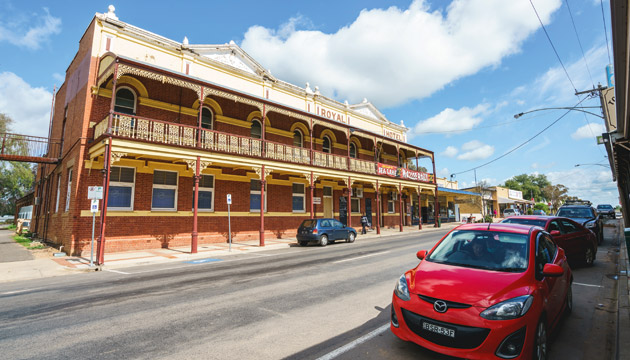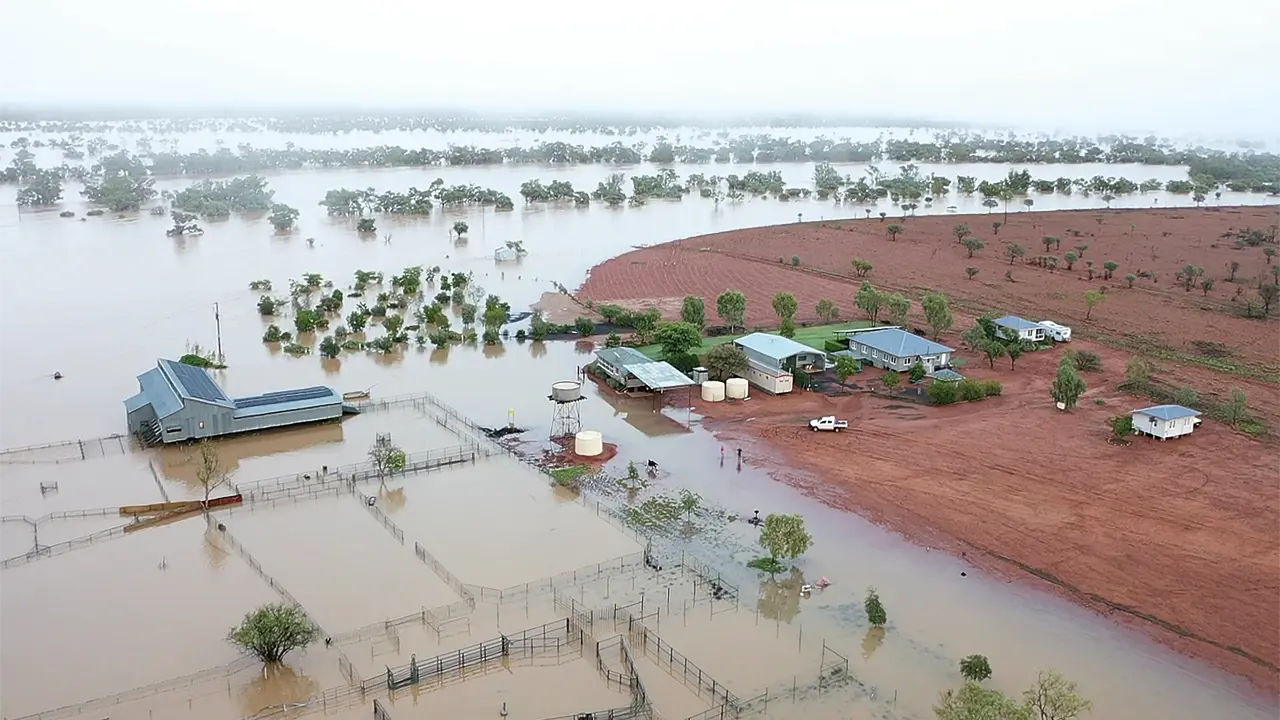Interest in a nearby lake from Chinese tourists has turned around the fortunes of this quiet town in the Mallee.
Story John Dunn Photo David Sickerdick
Until recently, the biggest thing Sea Lake, Vic, had going for it was Australia’s largest off-road car event, the Mallee Rally. That was until Chinese websites started identifying Lake Tyrrell, seven kilometres north of town, as one of the top places to visit in the world, alongside the likes of London and Paris.
This shallow, salt-encrusted and mostly dry depression had gone mostly unnoticed previously. But a few years ago, Julie Pringle, who then ran one of the town’s two hotels, was contacted by a Sydney photographer. He was after pictures of the lake, showing its most unusual mirror-like qualities when it contains a thin film of water in winter. The photos were shown to the local Chinese community and then found their way to China, where they attracted enormous interest.
The Chinese were instantly fascinated by a scarcely populated, unpolluted place that had this extraordinary lake on which clear skies reflected striking scarlet sunrises and sunsets, snow-white clouds during the day and shining stars at night. Visitors could photograph themselves romping through fluffy clouds or dancing among galaxies.
Many of the visiting Chinese have children studying in Australia. Yubin Chen, a businessman from Nanjing, was one. His daughter, Ying, is studying molecular biology in Sydney. Yubin and his wife Lian flew to Sydney, picked up their daughter and made a 2000km round-trip drive to Sea Lake to see Lake Tyrrell. “It was just beautiful,” Ying says. “It was quiet and peaceful. It was well worth the journey.”
Chang Liu, from Shanghai, is studying finance in Melbourne and came to Sea Lake with his friend Yue Nan. “Our Chinese colleagues told us about this so we decided we must see for ourselves and we’re pleased we did because the lake has so many different moments,” he says. “It’s most unusual.”
At 20,860 hectares, Lake Tyrrell is Victoria’s largest salt lake and has been mined by Cheetham Salt since 1963. While locals sometimes visit on warm evenings for barbecues, it was the Boorong people who traditionally paid most attention to the lake because it mirrored the stars. They named it ‘Tyrille’, meaning sky.
“For most people the lake was just a popular picnic place in summer,” says Jane Stacey, who has lived in the district all her life. While locals were happy to see visitors, the influx of people brought its own problems. “We had no infrastructure – there were just dirt tracks, no parking rules, no notices to tell people not to drive onto the lake because they would bog, no toilets, not even enough rubbish bins,” Jane says. “We were babes in a tourist boom.”
Dave Walter, who runs the Royal Hotel, pulls no punches when he gets a call from Beijing for a couple of rooms. “I tell them straight up that this is a 100-year-old hotel and there’s no such thing as an ensuite,” Dave says. “The loos and the bathrooms are at the end of the passage, and shared! They love it, and they love our big steaks even more.”
With a group of friends, Jane formed the unofficial Lake Tyrrell Steering Committee. “Clearly this was an exciting new venture for Sea Lake and we needed to capitalise on a great asset that had suddenly fallen into our lap,” Jane says. “Also, we wanted to ensure that the town itself didn’t miss out on the financial benefits, because ... there was a trend for visitors to stay at nearby places like Swan Hill and Bendigo and make daytrips. We want people to stay here, eat here and shop here.”
The group began conferring with various State Government bodies such as Parks Victoria, which controls most of the lake as a wildlife reserve, as well as the local Buloke Council and the Boorong people. A strategy was developed to try to create a viable tourist industry that also protected the lake and its environment. Already the group has produced signage and brochures in Mandarin and English, a viewing platform and traffic control measures. Visitor numbers are expected to grow to 192,000 each year by 2025, worth $7 million to the local economy annually. Three new enterprises are underway – a café/restaurant, an aerial sight-seeing service and an accommodation complex. Melbourne businessman Andrew Stott has bought the building formerly occupied by the local newsagency. “I’ve been coming here for 40 years”, he says. “When I saw what was happening with the lake I knew it would complement an opening for a café/restaurant. We’ll even have wok burners in the kitchen”.
This story excerpt is from Issue #112
Outback Magazine: Apr/May 2017









